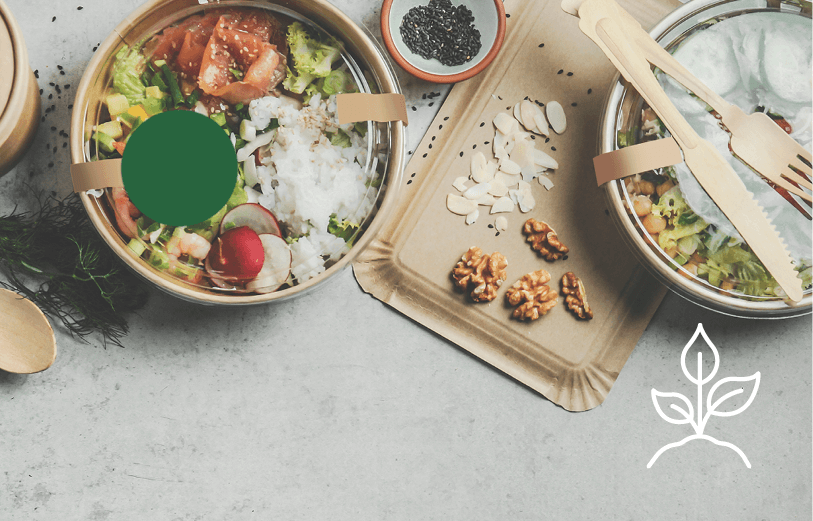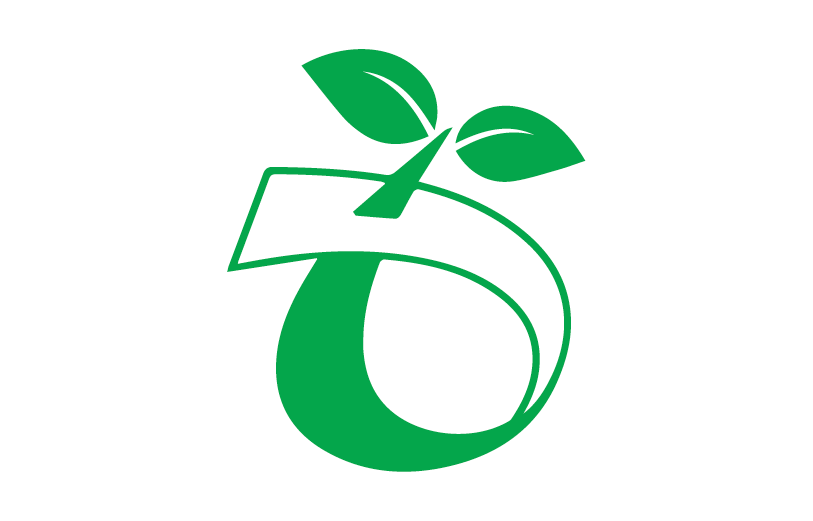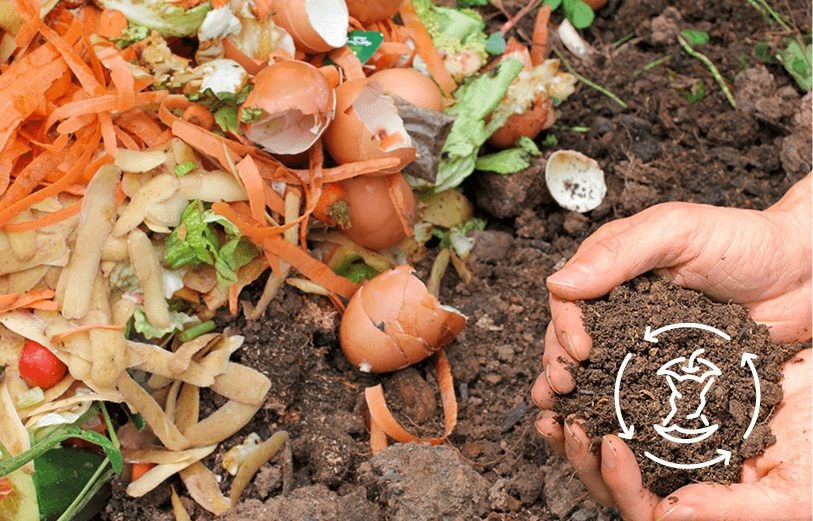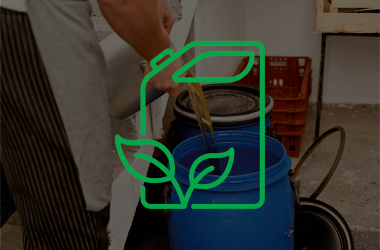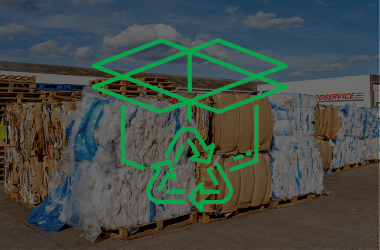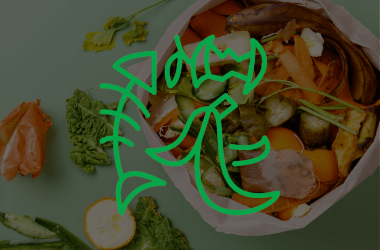Compostable food packaging - what you need to know
But what about compostable food packaging?
This a good question.
Most disposable food packaging (cutlery, cups and food trays) are now free from plastic, following a ban which was introduced in October 2023, and can technically be commercially composted or will biodegrade.
Which is great news, when it comes to reducing single-use plastic.
But, as above, access to commercial composting depends on where you live and how your food waste is processed. If you can’t put food waste in your garden waste or brown bin, there is likely to be no commercial composting service in your local area.
Or, if you’re enjoying a take-away coffee or bite of street food while you're out, do you have access to public composting bins? In which case, you are best to put all food waste and food packaging in the general waste bin - whether it's compostable or not.
Some food packaging options are now recyclable as well as compostable, however only clean food trays can be recycled.
Is compostable food packaging good or bad?
These compostable food containers are not recyclable in the same way as plastic but, as they are made from natural materials which can break down into compost again (in the right environment), they are deemed to be better overall and have replaced single-use plastic alternatives.
Not sure which items of food packaging are commercially compostable? Check out these examples that we stock from Zeus food packaging.
So which symbol means commercially compostable?
You should be able to add any food packaging with this symbol on into your food waste, if you know this is processed for composting by your local council.
Once collected, this usually takes about 12 weeks to break down in a commercial composting facility and creates fantastic compost for farmers and/or green energy for the national grid.
Confused by the different food recycling symbols?
We agree, it is difficult and frustrating when there are so many different types of food packaging and different rules.
Here is a a quick guide to help you navigate what you can and can't do!
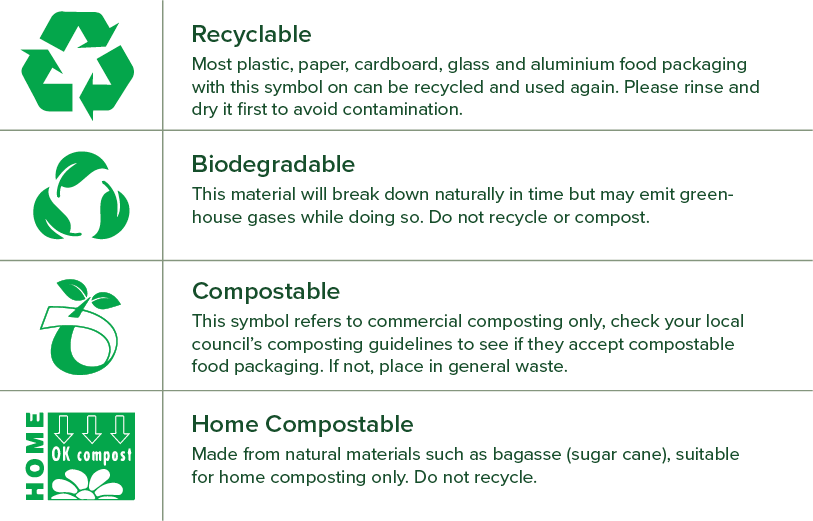

And can I recyle any packaging with food and drink on it?
Unfortunately, no you can't.
Residue from food and drink on disposable food packaging or food containers, even though the material itself is recyclable, contaminates that material. And in turn, this will contaminate the rest of the mixed recycling, meaning large amounts of recycling will be rejected at the facility because the items you tried to recycle weren't clean.
So, please don't put dirty food packaging in the recycling - although it may feel like you are doing the right thing!
As a foodservice provider, we are introducing options which are recyclable as well as compostable, so, in this case, the dirty food trays could be put into a bin to be sent to commercial composting, to reduce the amount of waste that ends up in landfill.
To recap, what do I do if I'm not at home or can't compost food waste in my garden waste?
If you’re out and about, it is harder to compost food packaging full stop at the moment, as there are no public bins for compostable waste.
Feel free to ask your food vendor if they collect and compost their food waste, as some independent coffee vendors and street food trucks will do this, in which case they may have a bin that you can add your compostable food packaging to.
Otherwise, when it comes to binning your commercially compostable cups, take out boxes and trays – for now – the best thing to do is put these in the general waste bin (please do not put these in a recycling bin as they are not recyclable).
If you want to do more and your local council is not helping you to compost food waste, you may want to write to them to ask why.
